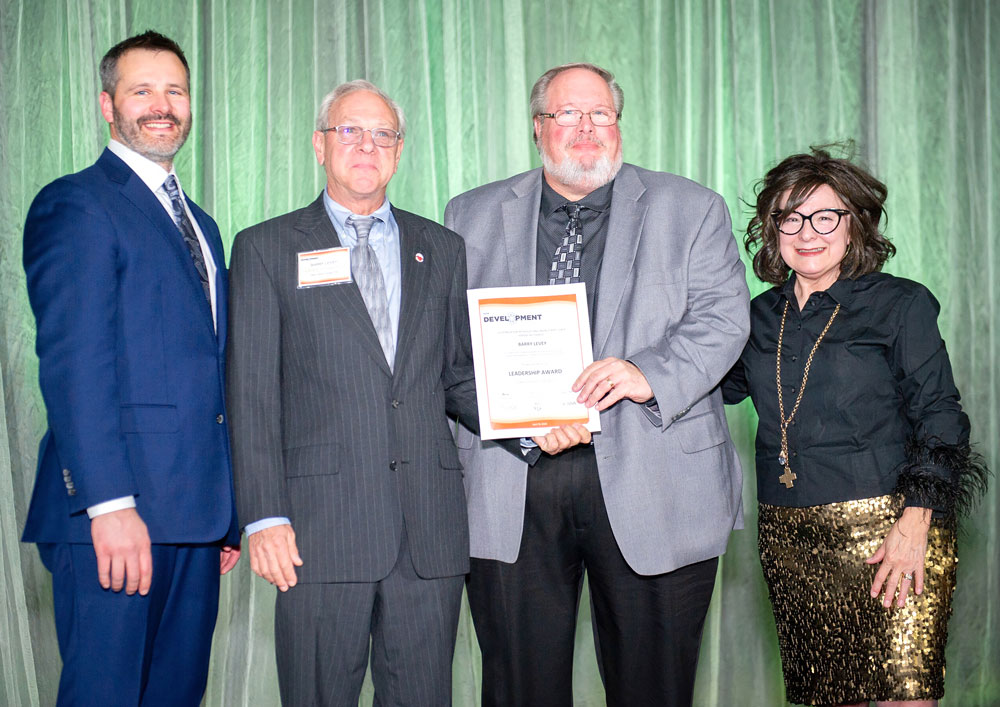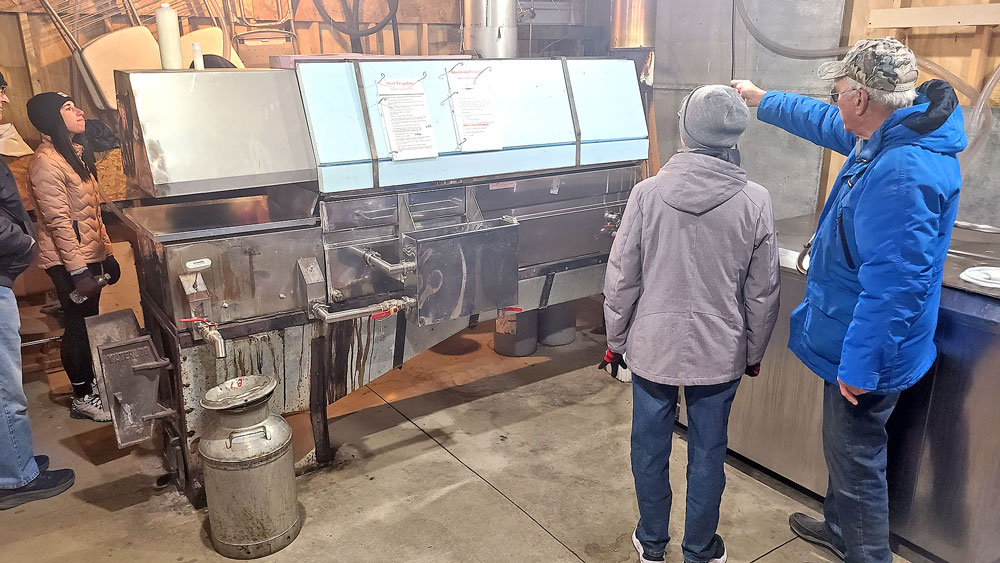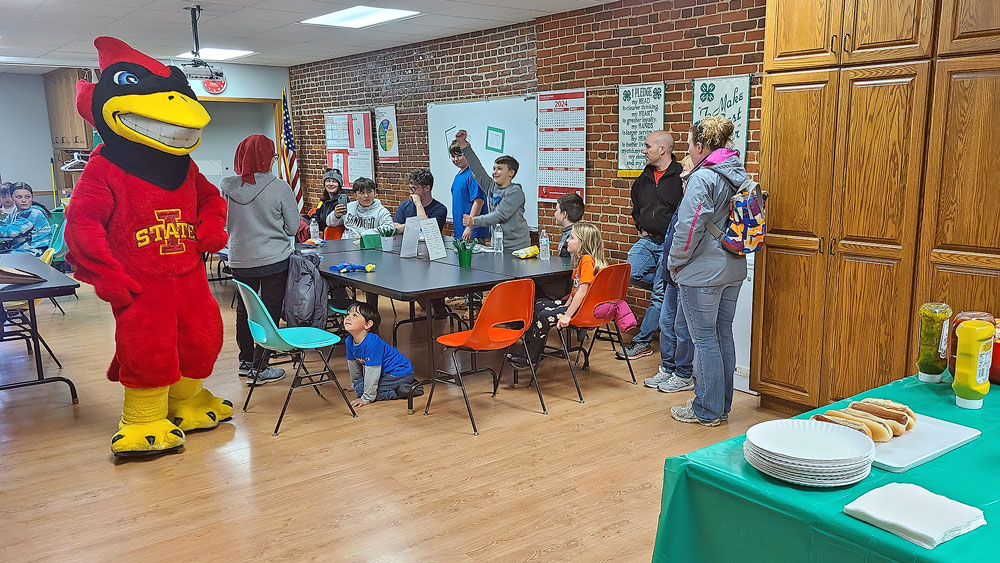Property purchases for law enforcement center nearly complete

This illustration shows where the new single-story law enforcement center and the atrium connecting the LEC with the courthouse will be built according to current design plans. The private residences at 111 S. Jackson St. and 101 S Jackson St. are being purchased by the county and will be demolished. South Jackson Street between Gilbert Street and Court Street will have to be closed.
By Bob Steenson, bsteenson@charlescitypress.com
The owners of the two private homes located in the path of the new Floyd County law enforcement center project have likely reached agreements to sell the properties to the county.
A formal offer to buy had been accepted previously by the owner of 111 S. Jackson St., Paige Cerwinske, for $133,000 — about 180 percent of the property’s assessed market value of $74,000.
At a special meeting Monday afternoon, the Floyd County Board of Supervisors learned that the owners of 101 S. Jackson St., Glenda Hillson and Wesley Winters, had tentatively accepted the county’s offer of $65,000.
That home had a fair market value appraisal of $36,000, so the selling price represents about the same 180 percent of fair market value that the other home was sold for.
On both homes the county will pick up such costs as the abstract and title preparation and other incidentals. The property owners will be responsible for paying off any liens against the properties such as mortgages.
The properties are needed for the up-to $13.5 million voter-approved law enforcement center project that will include a new county jail and updates to the courthouse. The new single-story building will be attached to the five-story courthouse with a five-story atrium between them, and will stretch across Jackson Street to the west of the courthouse.
The project will require closing Jackson Street from Gilbert Street to Court Street.
The meeting Monday also included a discussion regarding closing board meetings to discuss the purchase of property.
The Iowa Open Meetings Law allows a government body to close a public meeting “to discuss the purchase or sale of particular real estate only where premature disclosure could be reasonably expected to increase the price the governmental body would have to pay for that property or reduce the price the governmental body would receive for that property.”
At the last closed meeting on Aug. 6 regarding the purchase of 111 S. Jackson St., the property owner was present during the closed meeting.
After the meeting the Charles City Press sent a message to the county board and county attorney’s office expressing concern that the Iowa Open Meetings Law may have been violated because the requirement for closing a public meeting may not have been met.
This newspaper presented its opinion that the open meeting exception to prevent premature disclosure did not apply with the seller present at the meeting.
Assistant Floyd County Attorney Randall Tilton, who has been working with the county board on the property purchases, responded last week to the Press’s message at the request of board Chairwoman Linda Tjaden.
Tilton wrote, “The concern regarding increasing the price to the governmental body was two-fold. First, there was a concern that outside influence would have the effect of driving up the cost of the seller’s demands on certain items, or causing the seller to walk out on negotiations altogether.
“Second, keeping the discussions confidential prior to the approval of the Offer to Buy and Acceptance prevented a third party purchaser from offering the seller more and then attempting to negotiate with the County for a higher price.”
In a response to Tilton’s message, the Press replied in a message sent Monday morning: “Regarding disclosure to outside influencers or possible third-party purchasers, both the property address in question and initial purchase offers had been identified previously during open meetings and publicized by the Press and other media, giving any third parties ample opportunity to act had they chosen to do so.
“Keeping the seller at the bargaining table may have been a worthy objective, but it is not part of the preventing premature disclosure requirement” of the Iowa law, the Press wrote.
At the meeting Monday afternoon, Supervisor Mark Kuhn, who was not at the Aug. 6 meeting, wondered how the property owner had happened to be present during the closed session.
Public meetings can only be closed by a majority vote of the members present. Supervisor Tjaden and Doug Kamm voted to close the meeting.
Tjaden said she was relying on the advice of the assistant county attorney that it was OK to close the meeting, and that it would be OK for the property owner to be present.
Kamm said he was “a little surprised” to see Cerwinske at the closed session, but assumed it was OK because Tilton had suggested it.
Kuhn said that based on correspondence between the property owner and the board, it appeared an offer was close to being accepted, so he wasn’t clear how third-party considerations would justify a closed meeting with the seller present.
“Your reasons for going into closed session don’t appear valid,” Kuhn said to Tilton.
Tilton, who holds an appointed, not elected, position, responded, “I would remind you, Supervisor Kuhn, I did not vote to go into closed session.”
“But you advised them to go into closed session?” Kuhn asked.
“I don’t remember if I was asked,” Tilton said.
“You advised that Paige Cerwinske could attend?” Kuhn asked.
“Yes,” Tilton said.
Kuhn asked if the county attorney could be asked to present her opinion on the topic, since she is an elected official.
Tjaden said she would talk with County Attorney Rachel Ginbey and ask for her opinion.
One of the provisions of the Open Meetings Law exception regarding real estate purchases is that once the sale is concluded or canceled, the minutes and recordings of the closed sessions are available to the public.
“I would like to hear the tape,” Kuhn said.
Tilton said the minutes and recording will be public as soon as the sale closes.









Social Share